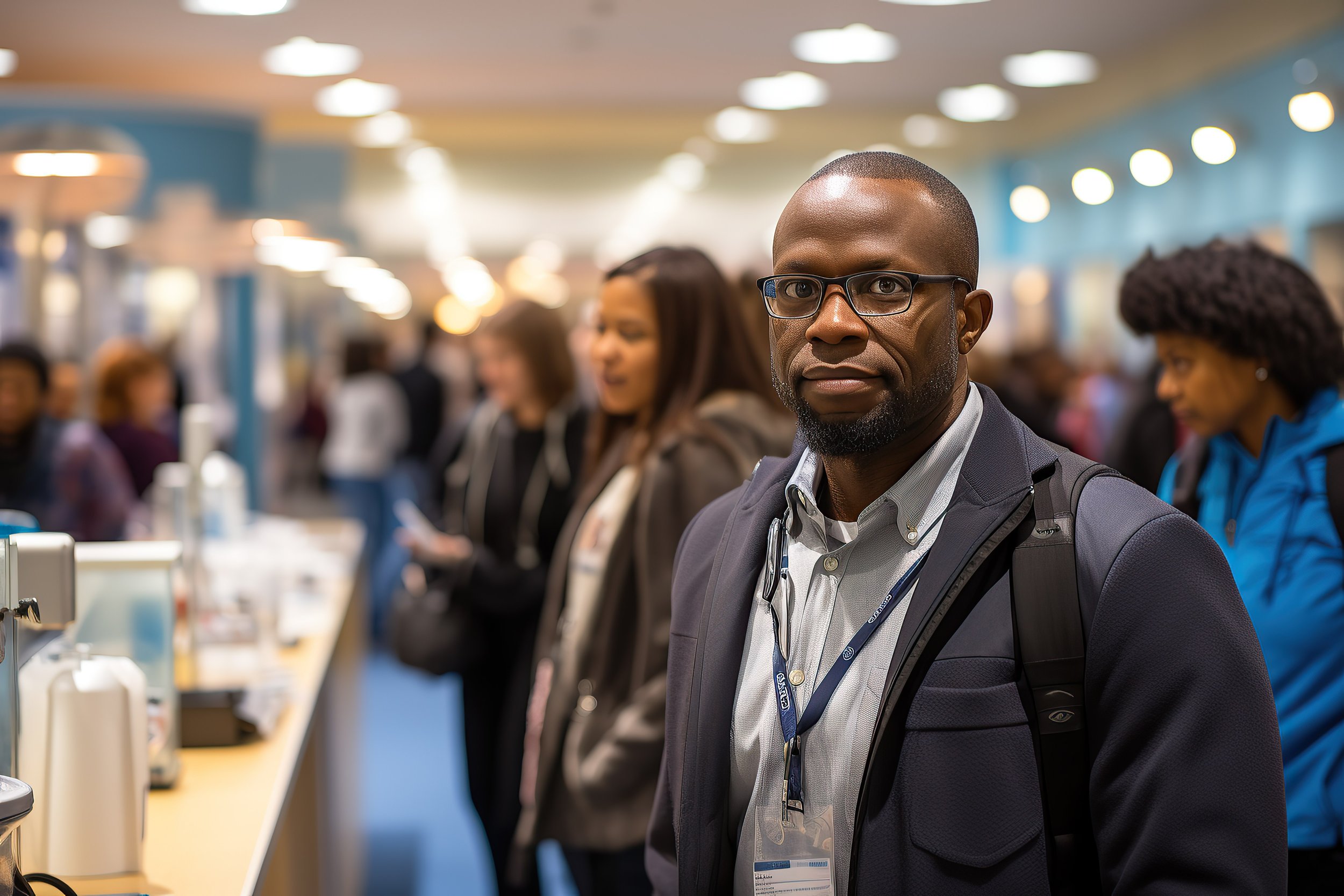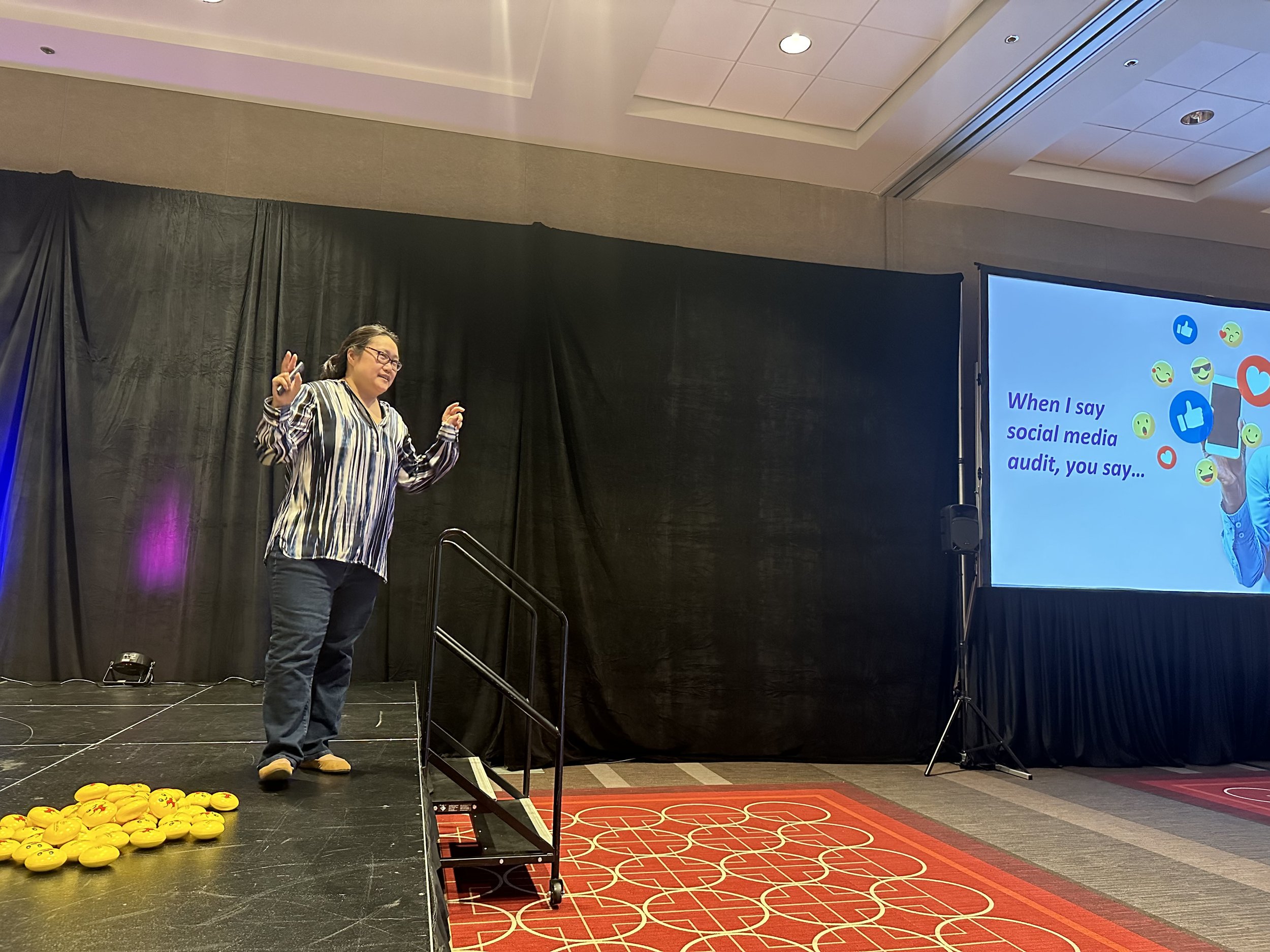An introvert’s guide to winning at conferences
Adobe Stock
This week, I had the pleasure to attend and speak at Digital Summit Minneapolis, a digital marketing conference that drew hundreds of fellow professionals to the Minneapolis Convention Center. Digging out from my inbox this morning, I kept thinking about one thing: how I survive professional conferences even though I am – deep down at my core – an introvert.
That may surprise some of you who know me. I am not afraid of public speaking. I am not shy. And if you engage me on pretty much any topic related to social media, I will talk your ear off.
So first let me clarify for those of you who are really confused. The difference between introverts and extroverts is not shyness or ability to function in crowded settings. The real difference is whether your personal cup of energy, enthusiasm and happiness is filled up by interacting with others or drained.
For extroverts, going to a place with hundreds of other people and having dozens of conversations in a short amount of time is really, really exciting and fulfilling. It FILLS UP their cup. For introverts, it’s not that we are incapable of having or enjoying these conversations. It’s that the effort associated with being “up” all day and engaging actively with dozens of people DRAINS our cup. Makes us feel less energetic, runs down our battery. And so, for introverts, when we expend this energy, we then need to recover and recharge. An extrovert comes out of such an event already recharged and raring to go with new ideas and energy.
OK so, after attending tons of conferences, here’s my guide for introverts attending conferences. I don’t know who needs to hear this, and I know it has nothing to do with social specifically. But if we learned one thing from our 2024 National Institute for Social Media Job Study, it’s that social media professionals are burning out. Our mental health is in the garbage. So learning how to learn from your peers while also not draining your own cup is vital for those of us who identify as introverts in the world.
Come with a plan: All major conferences release the agenda in advance, and usaully there are 2-3 different speakers presenting at the same time so that attendees can choose which session is best for them. Review the agenda ahead of time. Pick the sessions that are most important for you to attend. And then pick ones that you would like to attend if possible but are lower priority. This way you walk in the door knowing what your “must attend” timeslots are.
Come with specific, reasonable objectives: Before you attend, spend 5 minutes brainstorming goals. I want to meet 10 new people. I want to find three potential new clients. I want to find someone who knows about X topic. Make these goals smaller and reasonable. And then when you attend the event, any additional interactions leads or insights you gain are just gravy. This helps you keep the event small in your head and be less overwhelmed. It also helps you feel really good because you will meet your goal of meeting 10 new people before lunch on the first day.
It’s OK to take a break: At Digital Summit Chicago, I had an interesting discussion with a young lady who was attending her first professional conference and was clearly struggling with all of the social interactions. She had made a mistake that I think a lot of young professionals make: she assumed she needed to be butt in seat from 8 a.m. – 5 p.m. That’s not true. You are totally allowed to skip stuff.
Here's a secret: when you get back to your office, your boss will certainly want to know how the conference was, what you learned, etc. But he or she will never ask you to sit down and go session by session and tell them about each one. You are under no obligation to go to a session if there’s nothing of interest or of value during that time slot. And if you are just really tired and you’d rather just sit and relax or go back to your hotel room for an hour, do that. If it means you will be more refreshed and more able to engage in your “must attend” sessions, there is more value in resting now.It’s OK to skip breakfast. Most conventions start with morning breakfast, which can be a great time to network and meet people. But you don’t have to be there at 8 a.m. sharp. If breakfast is 8-9 and the keynote speaker starts at 9, you can totally roll in at 8:45, grab a plate and sit down for the talk.
It’s OK to skip the reception or the “fun.” Many conferences plan extra activities from VIP cocktail receptions or extra dinner/cocktail parties in the evenings to full-blown excursions to explore the host city. These are fun and can again be great chances to network. But if you don’t feel up to it, don’t go. If you DO attend, watch your alcohol consumption. It is no good being hung over in the morning on day two.
Watch your caffeine and sugar intake: All conventions have coffee for the asking and often all kinds of treats and sweets throughout the day. This helps keep the crowd satisfied and caffeinated especially after lunch. I am a self-proclaimed coffee addict. I drink way more coffee than I should. But when I attend these events, I actually drink LESS coffee than I do during a regular day. I skip the trays of cookies and brownies that materialize in the afternoons. And I drink water. Lots of water. I do all of this because I’m trying to avoid big swings in my energy. I don’t want big spikes and then crashes. So I moderate my own intake to make sure I am not causing those swings in my energy level myself.
Be comfortable. All conferences these days are “business casual.” Jeans are OK with a nice top. Sneakers are OK. On days when I’m not speaking on stage, I put comfort over fashion always. If you’re not comfortable, you will not be able to engage with others at 100 percent because part of your brain will be focused on the blister on your right foot. (Also, I always carry a pair of flip flops in my backpack just in case my shoes turn out to be the wrong shoes.) Bring a sweater or layers you can put on or remove. No conference room is ever the right temperature.
Plan your recovery. Introverts need time after an event like a conference to recharge and refill their cup. I have absolutely nothing on my calendar this weekend, and that is very intentional. Make sure you plan for your restorative cup refilling time post-event if you are the type of person who needs that.
Don’t’ worry fellow introverts!
It is possible to enjoy and get a lot out of all professional conferences. Many people would say these opportunities are what you make of them. That’s true. But for introverts, I would amend that slightly to say what you make them often depends on you knowing your own limits and honoring them when you need to.
Your strongest feeling after a conference should be: “I learned a bunch and met some great people.” If your overarching feeling is “God, I’m exhausted,” try some of these tactics next time and see if they help you feel that the event is a bit more managable and a bit less exhausting.
Serna Social CEO Sue Serna speaking at Digital Summit Minneapolis Aug. 14, 2024. Photo credit: Christina Milanowski/Curious Plot



